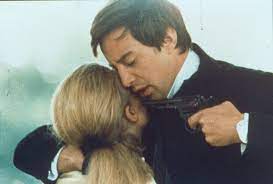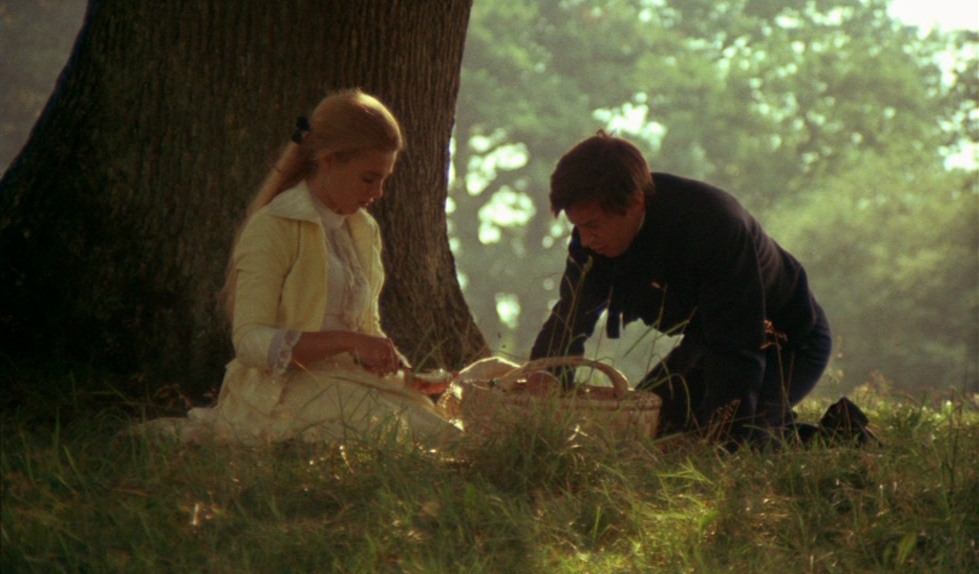Widerberg’s Elvira Madigan has two picnics. The first is a lover’s idyll; the second is sad and deadly.
When Elvira Madigan, aka Hedvig Jensen, a circus performer, and Count Sixten Sparre, a married cavalry officer, eloped, their life together was a picnic. Their moment of happiness was brief, and when their picnic fizzled, they died rather than return to their former lives.
Having run off from family, friends, and occupations, Madigan and Sparre spend their time making love. They sit on the grass beneath a giant oak tree where they have a white-cloth-picnic spread with bread, cheese, grapes, bread, and wine. Life is good, and they are carefree.
Summer wanes, and without funds or social resources, Madigan and Sparre realize the inevitability of ending their idyl. They prefer death to face an unacceptable future and return to their former lives. Elvira Madigan (1967)
Elvira Madigan (1967)
Widerberg’s intention of maximizing the romantic tension means that he will turn this picnic topsy-turvy. As at the earlier picnic, the lovers set out a wicker filled with bread, cheese, and wine, all stolen. They settle under the great oak, but when Sparre opens the wicker, he unpacks a service revolver. As prearranged, when Madigan goes off to chase butterflies, Sixten follows her—and shoots her. Moments later, he shoots himself.
Though their deaths are off-screen, the pistol shots are shocking.
* Widerberg’s clever use of Wolfgang Mozart’s Piano Concerto No. 21 in C major became extraordinarily popular. Many did not know referred to the concerto as “Elvira Madigan.”
The cast: Pia Dagermark as Elvira Madigan and Thommy Berggren as Sixten Sparre.
See Bo Widerberg Elvira Madigan.” Screenplay is by Bo Widerberg (1967)

